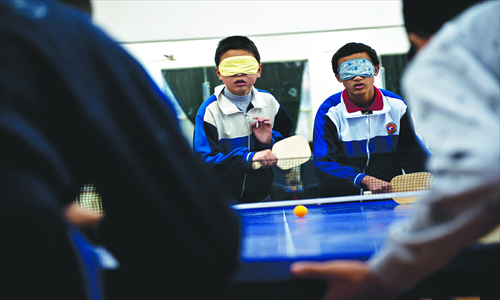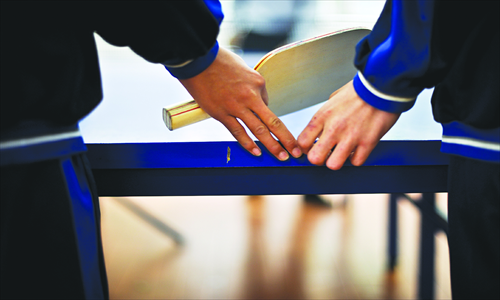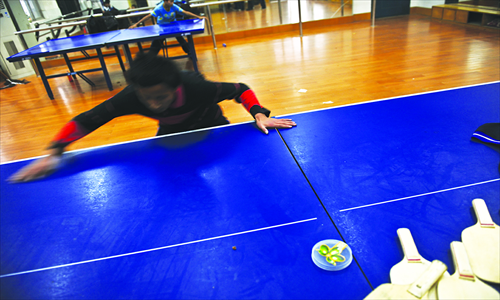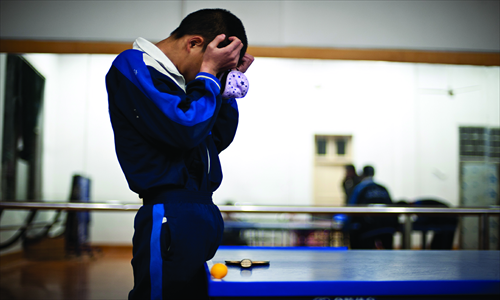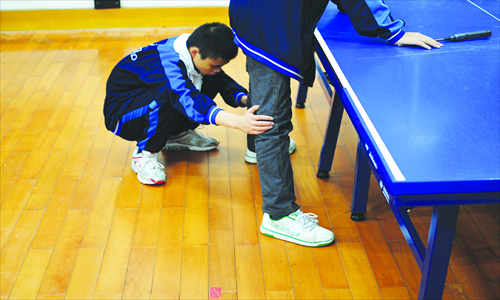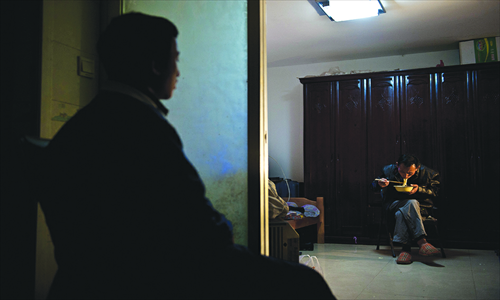Playing it by ear
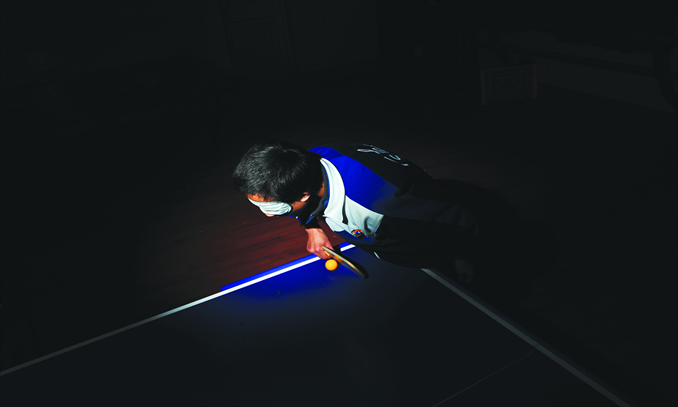
At a school for disabled children in Changsha, Central China's Hunan Province, several vision-impaired boys have recently fallen in love with a new sport - table tennis, or ping-pong.
Xiao Chao, 15, from a rural family in Hunan's Xinning county, had never imagined he could play the game again when glaucoma, an eye disease that damages the optic nerve, made his world go dark when he was 13.
Coming out of his previous depression and isolation, Xiao now smiles more and has become increasingly active.
Wang Haijun, a sports coach in Changsha Special Education School, attributes the shift largely to the table tennis games the school set up for its vision-impaired students a few months ago. "We've found that the sport can provide comfort, make them calm and increase their self-confidence and involvement," Wang told the Global Times.
However, their version of table tennis greatly differs from the common one. The ball, known as a "sound ball," contains steel ball bearings inside, causing it to rattle as it moves. Furthermore, the rules forbid any bouncing. The ball has to be knocked back and forth on the table across a 4-5 centimeter high gap below the net set in the middle.
A formal game is held in an enclosed room without any noise while players must wear eye covers for fairness. Developing a strong hearing acuity is crucial and familiarity can help improve spatial awareness, and better judge the ball's location and speed.
Xiao and his classmates now play the game for two hours or more every day. He dreams of playing in the National Games for the Disabled one day and of winning lucrative competitions. With the money, Xiao dreams of opening a blind massage studio and earning a stable income to help lift his family out of poverty.
To treat his glaucoma, Xiao's family spent almost all their savings. Currently, his mother works odd jobs as a manual laborer in Wenzhou, Zhejiang Province, and his father collects scrap and garbage in Changsha.
According to the last national survey figures from 2006, China had 12.33 million visually impaired people for whom receiving proper education and training was a real challenge.
Twelve years ago, when seeking a job in schools after graduating from Hunan Normal University, Wang felt very disappointed as few candidates would choose to be a teacher for disabled people. But he feels proud of his choice. "When seeing improvements from each kid, I feel a great sense of accomplishment," Wang said.
Global Times
